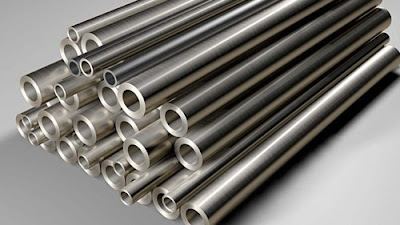What is Difference between Incoloy 800 and Inconel 800?
The superalloys Incoloy and Inconel, which belong to the same family, are frequently referred to as high performance alloys. Both superalloys display great oxidation resistance in addition to having a strong resistance to several types of corrosion. Both superalloys demonstrate extremely high mechanical strength at high temperatures. These elements work together to give both alloys their excellent performance characteristics. Since they are members of the same family, their characteristics are similar, but what distinguishes them is the variation in their makeup. The composition of Inconel 800 and Incoloy 800 is where there is the most significant difference. The chemical elements nickel and chromium predominate in the alloy known as Inconel 800. This alloy's chemistry often comprises more than 50% nickel. In contrast, the principal components of the alloy Incoloy 800 are nickel, iron, and chromium. Contrary to the former, this specific alloy has a chemical composition with less than 50% nickel. The employment of each alloy in a particular set of applications or industries is what separates them from one another in addition to their chemical composition.
Incoloy 800 V/S Inconel 800
An alloy with a greater iron concentration is called Incoloy 800. The cost of Inconel 800 decreases as a result of the alloy's greater ferrous and lower nickel content. The alloy is regarded as the optimum material for applications involving high temperatures since it is a cost-effective choice. The applications that employ this alloy tend to be less demanding even if it is used at a high temperature. Making the alloy is not too difficult. As a result, producers may employ the same tools and procedures used in the manufacturing of stainless steel alloys. This alloy places a strong focus on its greater resistance to aggressive kinds of corrosion. Incoloy 800 in particular has extremely strong resistance to the corrosive substances found in aquatic settings. Its chemical composition, which includes chromium and nickel, renders it resistant to corrosion from chemicals and the environment. Additionally, the alloy shows resistance to surface pitting and cracking as well as physical degradation. Oil and gas companies frequently use Incoloy 800 because of its ability to handle sour gas and high chloride situations. The alloy works well for maritime applications because of its exceptional resistance to saltwater and salinity. Applications for Incoloy 800 include wet cleaning, the reactive atmospheres of furnaces, as well as fields like nuclear fuel.
Inconel 800 in which Over 50% of nickel is chemically derived from Inconel 800, which is known to be more costly than the former. Because nickel is an expensive metal, including it in an alloy raises the price of the metal. Inconel 800 creates a substantial yet persistent oxide layer when heated. The Inconel 800 component's exterior surface is known to be shielded from additional damage by this substantial coating. Manufacturers advise utilising Inconel 800 for applications involving high pressure and intense temperatures because of this behaviour. Metals or alloys like steel and aluminium would experience thermal creep under such harsh circumstances. Inconel 800 is frequently used in the food and beverage sector in addition to heat-treated components. Inconel 800 is a very rigid and strong alloy that is perfect for demanding applications in the chemical processing, aerospace, and marine engineering sectors.
High quality of Inconel and Incoloy Manufacture and Supply by Stanley Alloys. Which provides the best Quality of Incoloy 800 Seamless Pipe.




Your blog contained a lot of extremely useful information, and it also provided a lot of useful instructions, which was a really admirable idea. You have offered valuable insight on this subject; we would appreciate it if you could add even more details Cold Formed YST 310 Mild Steel Square Hollow Section Exporters.
ReplyDelete